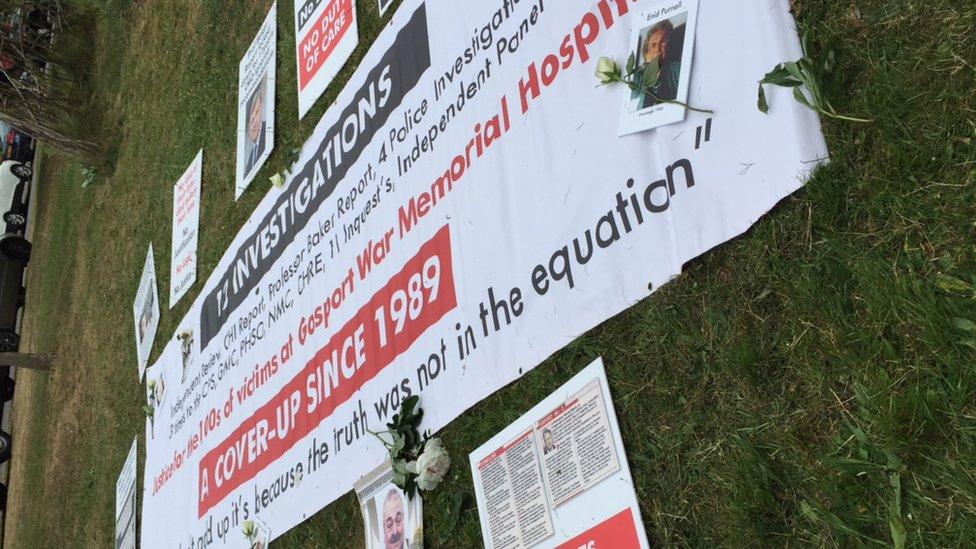Gosport hospital deaths: 'Blame culture' must end, says Hunt
- Published
Gosport hospital deaths: Timeline shows investigation
The "blame culture" in the NHS has to change to avoid more scandals like the Gosport War Memorial Hospital deaths, the Health Secretary has said.
Jeremy Hunt said it was still too difficult for whistleblowers to raise concerns about mistakes being made.
He was responding to claims similar situations to Gosport were "likely" to be replicated elsewhere in the NHS.
An inquiry, external has found more than 450 patients died after doctors gave them "dangerous" amounts of painkillers.
Prof Sir Brian Jarman, an expert on hospital mortality at the Dr Foster Unit at Imperial College London, told the Today programme the Gosport situation may be repeated because information on death rates was not properly assessed by health officials.
He said "there really is a desire not to know," about mortality rates at the Department of Health, adding that NHS whistleblowers were still being "fired, gagged and blacklisted".
Mr Hunt acknowledged a "blame culture" existed "in a lot of the NHS".
He said: "If you are a doctor or a nurse and you see something going wrong - even if you are perhaps responsible for a mistake yourself - the most important thing, the thing that families want if they are bereaved or if they have a tragedy, is to know that the NHS isn't going to make that mistake again."
"We make it much too hard for doctors and nurses to do that - they are worried that there will be litigation, they will go up in front of the GMC or NMC, the reputation of their unit - in some places they are worried they might get fired, so we do have to tackle that blame culture and turn that into a learning culture."
He was "confident" that procedures and checks were now in place to ensure similar problems - linked to high mortality rates - were identified quickly.
Gosport hospital: Families 'grossly let down' by authorities
The Gosport Independent Panel's report found whistleblowers and families were ignored as they attempted to raise concerns about the administration of medication on the wards, which was overseen by Dr Jane Barton.
It also said, taking into account missing records, a further 200 patients may have suffered a similar fate, external between 1989 and 2000.
Nursing staff first raised concerns nearly 30 years ago but their fears were "silenced" by management, it revealed.
The authors determined there was a "disregard for human life" of a large number of patients.
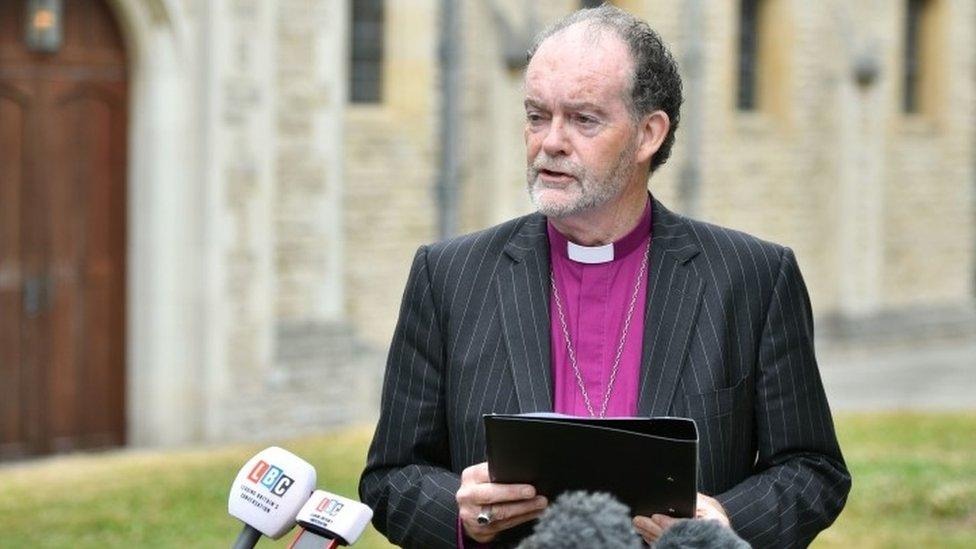
Bishop Jones led the panel and announced its findings outside Portsmouth Cathedral
People in Gosport have been left shocked by the report's findings.
"I've actually got an appointment at the hospital later and since hearing about the report it's definitely given me some concerns," said Debbie Clark.
"It's just disgusting, absolutely horrifying that something like that could have happened to so many people.
"I think everyone will feel worried if the worst were to happen and people won't want to go there. I definitely think it's playing to people's fears but the relatives who have kept fighting are amazing."
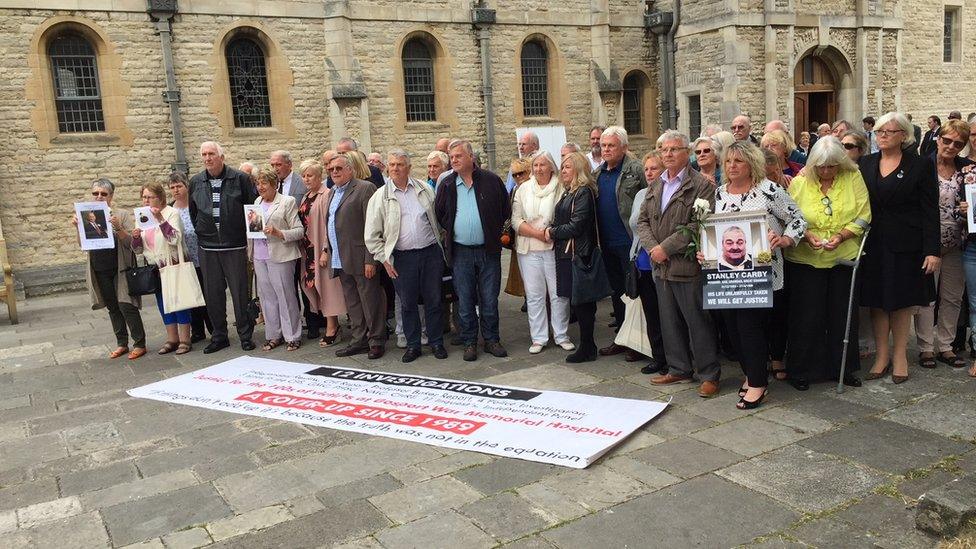
Families of those who died at Gosport Memorial Hospital gathered at Portsmouth Cathedral on Wednesday to hear the findings of the inquiry
Relatives are calling for a criminal inquiry into the actions at the hospital.
Pressure is also growing on police to take action quickly over the deaths of hundreds of patients.
Hampshire Constabulary previously conducted three separate inquiries, but no prosecutions were ever brought.
Chief Constable Olivia Pinkney said the panel had sight of information "not previously seen" by the force.
In a statement she said: "It is important that a process is put in place to ensure that all of the relevant agencies come together, to enable decisions about next steps to be made in a way that is well considered and transparent to all of the families."
Dr Barton, was found guilty of failings in her care of 12 patients at Gosport between 1996 and 1999.
She was not struck off the medical register but chose to retire after the findings.
- Published21 June 2018
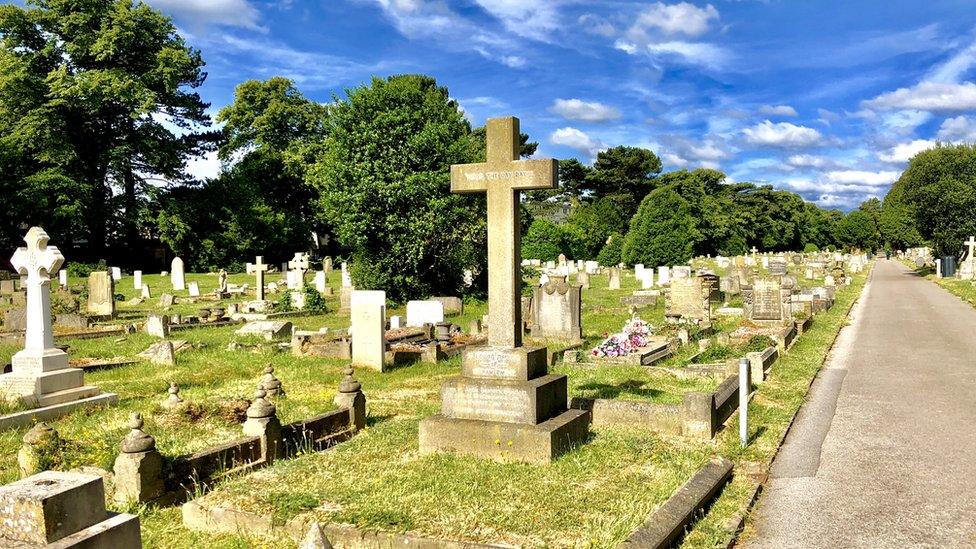
- Published20 June 2018
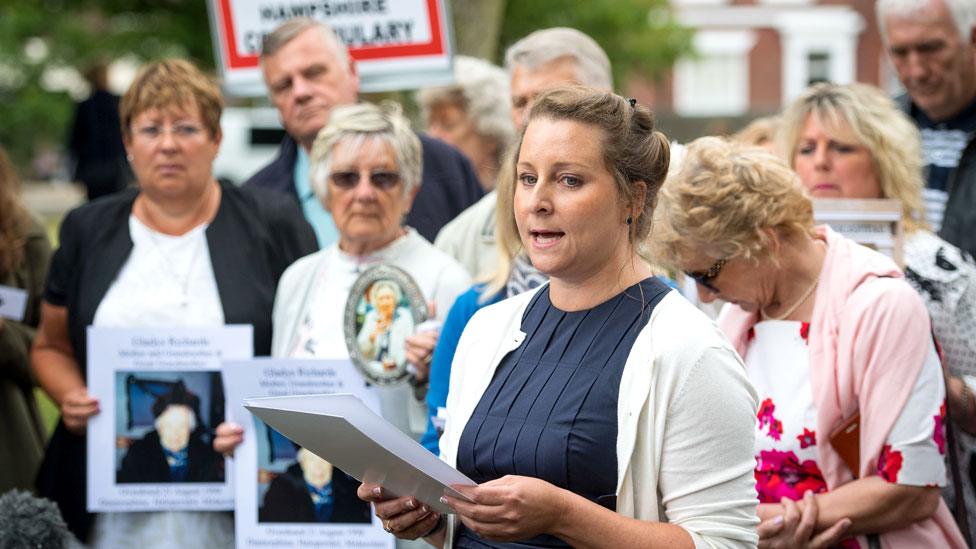
- Published20 June 2018
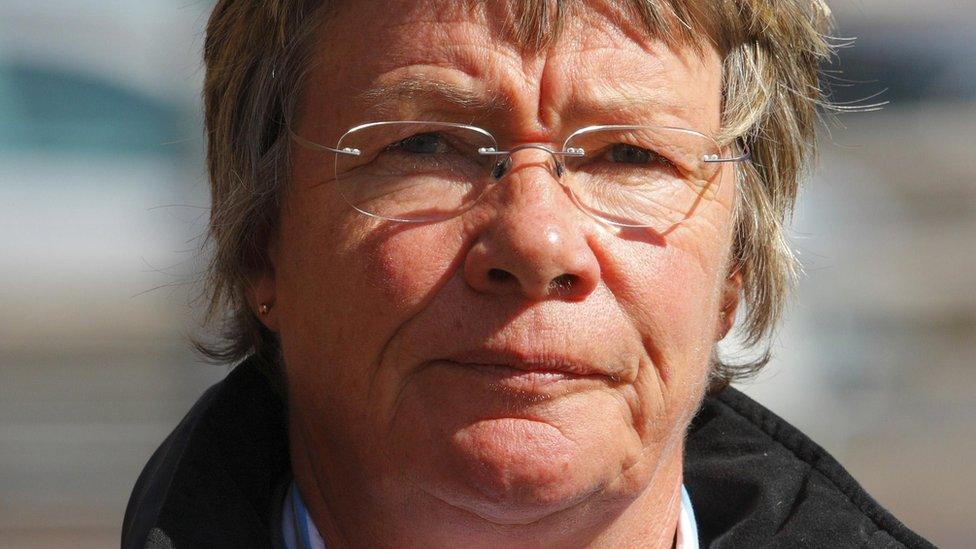
- Published20 June 2018
- Published20 June 2018
